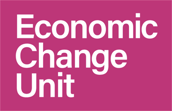The Honorary Treasurer is a key voluntary post within Mountain Training England and the wider network of related mountaineering organisations. As a member of the Board of Trustees, the Treasurer shares the responsibility for overseeing the management of the organisation and implementing the strategic objectives of its members.
The Treasurer has an oversight role over all aspects of financial management, working closely with other members of the Board of Trustees to safeguard the organisation financially. They act as an informed reference point for the Chair and other Trustees.
Although it is the Treasurer’s responsibility to ensure proper financial records and procedures are maintained, much of this work is delegated to the Finance and Audit Sub-committee and paid staff.
Our annual statement of accounts can be seen at Companies House.
Role of Mountain Training England Treasurer
- The Treasurer oversees the financial matters of Mountain Training England in line with good practice and in accordance with the governing document and legal requirements of the Charities and Companies Acts and reports both quarterly to the Board and to the Members at three Council meetings per year about the financial health of the organisation.
- The Treasurer ensures that effective financial measures, controls and procedures are in place.
- The Treasurer takes the lead on the formulation of policies for finances, reserves and investments.
Specific Responsibilities
- To oversee/verify and present budgets, accounts, management accounts and financial statements to the Board and Members after discussion with the Finance Committee.
- To ensure that appropriate accounting procedures and controls are in place.
- To ensure that full and accurate accounts and records are kept.
- In conjunction with the Executive Officer maintain sound financial management of MTE’s resources, ensuring expenditure is in line with the charity’s objects.
- To ensure compliance with relevant legislation e.g. Companies and Charity legislation and contractual agreements with external agencies such as funders and statutory bodies
- Chairing the Finance and Audit Committee in line with its terms of reference and reporting back to the Board.
- Present the annual statement of accounts to the Members at the Annual General Meeting.
- To liaise with designated staff about financial matters.
- Advising on the financial implications of MTE’s strategic and operational plan.
- Ensure that the annual accounts are compliant with the current Charities Statement of Recommended Practice.
- Ensure any recommendations of the independent examiner are implemented.
- Contribute to the fundraising strategy of the organisation.
- Advise on reserves policy and investment policy.
- Ensure that there is no conflict between any investment held and the aims and objects of MTE or partner organisations.
- Ensure that MTE has sufficient liquidity to meet its future commitments.
PERSON SPECIFICATION
ESSENTIAL SKILLS, QUALIFICATIONS EXPERIENCE
Considerable experience as a treasurer of similar sized organisations
Some experience of walking, rock climbing or mountaineering.
OR experience of controlling a budget in a small-to-medium-sized (SME) organisation/business
Have an interest in the development of the Mountain Training awards
Financial accounting and reporting experience
Experience of working with charity or educational body accounts
Recognised accountancy qualification e.g. ICAEW, ACCA, CIPFA, CIMA, AAT etc
DESIRABLE
Knowledge of Charity SORP
An understanding of Equity/Inclusion applicable to financial resources
Commitment
As Treasurer you will chair the Finance & Audit Committee, which meets quarterly. You will also be expected to attend four Board meetings and a minimum of one of three Members’ Council meetings per year. Attendance at the AGM is expected to present the annual statement of accounts to members.
Occasional attendance at MTUKI Council meetings and Finance Planning Group meetings is required.
Term
Trustees serve for a maximum of three years and are re-elected annually at the Annual General Meeting. At the end of the first three-year term of office Trustees are eligible for re-election for one further term of three years. From time to time the positions of Treasurer, Vice-Chair and Chair become subject to renewal. The Trustees nominate these positions from the Board and the Council votes to approve them at the AGM.
Expenses
Reasonable travel, parking and subsistence expenses are paid to Trustees, in line with MTE expenses policy.
To inspire, enable and develop people in walking & climbing activities through the provision of nationally recognised leadership qualifications.
The client requests no contact from agencies or media sales.
Are you passionate about building a more inclusive, sustainable and resilient economy? Are you looking for a meaningful way to use your finance expertise?
ECU is a small, dynamic non-profit working to transform the economy so that everyone has the freedom and security to live a good life.
ECU’s board members are responsible for ensuring that ECU is well-run and delivers on our ambition to accelerate the transition to a fair, sustainable and resilient economy. They are responsible for fulfilling the legal duties of a Company Director, as set out by Companies House. Although ECU is not a charity, it is focused on delivering a public purpose, so most aspects of the role are similar to that of a charity trustee role.
We are now recruiting for ECU’s first Treasurer, who will lead at board level on monitoring ECU’s financial performance and sustainability, ensuring that we have robust financial policies and processes in place, and supporting other board members to fulfil their collective responsibilities around finance.
This is an exciting time to join ECU. We have an ambitious vision for change, a strong analysis of the opportunities and barriers to progress, and a clear view of our role in building a better economy. Our board is committed, collaborative and inclusive, with a strong understanding of its role and remit, and a culture of open dialogue. Our work is challenging, fascinating, and fulfilling – and, with rising levels of inequality, an unfolding climate emergency, overstretched public services and a growing concentration of corporate power, it couldn’t be more important.



